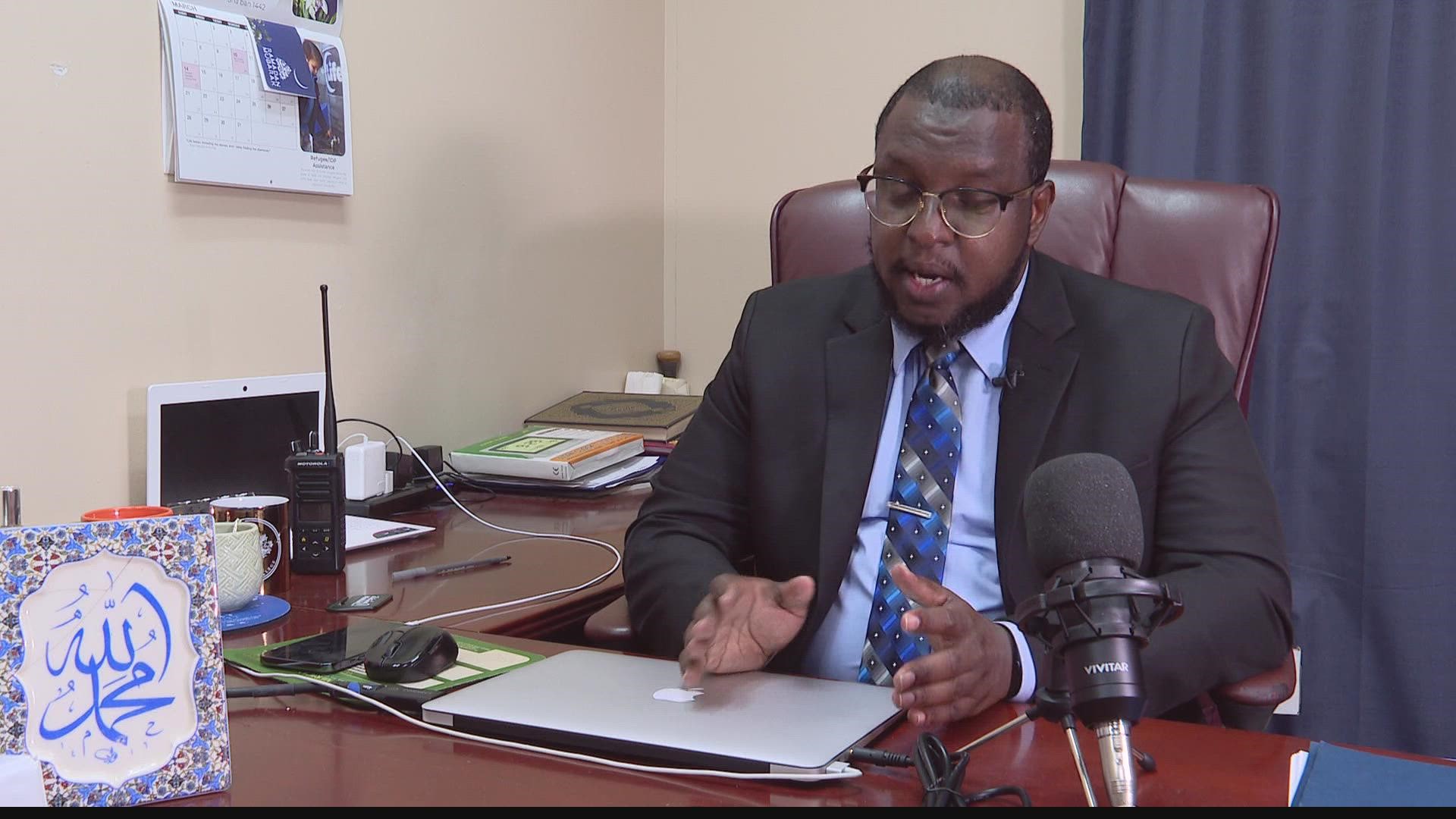INDIANAPOLIS — In the wake of the Supreme Court overturning Roe v. Wade, many across the country have weighed in across the country both praising and condemning the high court's abrupt change in eliminating the constitutional right to abortion.
With Indiana lawmakers expected to bring up and pass legislation at a special session on July 25 that would likely ban abortions in the state, many religious leaders in central Indiana are now pushing back and calling for access to abortion care to be protected.
"It's a human right. I think as long as it's regulated, the right should be there," said Ahmed Alamine, imam at the Indianapolis Muslim Community Association and Masjid Al-Fajr. “In Islam, we just do not seek abortion for no reason. But when the reason is here, it’s very important for us to respect that reason and make sure that women have the right that they deserve in order to stay healthy mentally, physically and emotionally."
Alamine said Islamic Sharia is a guide to living that those in the Islamic faith follow, covering everything from family life, financial life, how society should interact with one another as well as compassion and empathy.
“When we look at the issue of abortion, it’s very important for us to understand the purpose of the Sharia, which is related to preserving lives, dignity of humanity and also maintaining mental sanity,” Alamine said. “I believe the Islamic Sharia or the Islamic view of abortion is one of the most centric views. We take into consideration not only the life of the baby but the life of the mother as well, not any type of life but dignified life."
In Islam, Alamine said premarital and extramarital sex is not permitted. But, he said, families are able to utilize family planning methods including contraception. When it comes to abortion, Alamine said Islam does allow for it in some circumstances.
"In Islam, it is permissible, absolutely. When the husband and wife get to an agreement to end the pregnancy, 40 days from Day 1 to 40," Alamine said. "After 40 days, we look at the situation. And it's very important to understand that Islam doesn't give blanket rulings. The cases differ, the circumstances change."
After the 40-day mark, Alamine said in Islam, they now consider the baby in the womb to be a human life and would expect families to continue the pregnancy as long as the mother and child are healthy.
“The most important thing we need to look at is the health of the mom. If the mom’s health is at risk, then Sharia allows the mother to abort the baby because it’s committing the lesser of the two evils and preserving the life of the mother is a priority in this kind of situation, or the health of the mom,” Alamine said. "What is not permissible in Islam is for someone just to decide, 'Oh, I just don't like this baby and I'm going to abort the baby,' without any reason. But if there is reason, there is always abortion."
RELATED: Indiana lawmakers reluctant to answer abortion survey ahead of special session on abortion access
If the life of the mother is at risk at any point, Alamine said, an abortion can take place.
"Even if its late stage," Alamine said. "There are some situations where the mom's health is an issue. In this situation, we do our best and, of course, we work with the doctors. If the doctors say the mom will suffer too much, then they can also allow the family to move forward with an abortion."
Alamine said he was surprised to see the Supreme Court overturn the constitutional right to abortion, especially after he watched the confirmation hearings of recent justices where they agreed Roe was precedent.
Now, he said, he's concerned about the potential for a ban on abortion here in Indiana and the impact it could have for all women.
"I personally believe it should be an option always because it's not realistic to prevent someone from something they might actually need in this life. And when the need is here, they have to have it. So reversing it will put a whole new burden on a lot of women out there," Alamine said.
Alamine said an abortion ban in the state could impact women who have already been victimized themselves.
“Generally speaking, in the Muslim community, the issues of rape or incest are almost nonexistent. But that doesn’t mean it will not exist, it doesn’t mean that we should not be concerned about other people who are victims of this. So I’m not too concerned about the Muslim community, I’m concerned about anyone who is vulnerable out there,” Alamine said.
For those who are saying a ban on the constitutional right to abortion is akin to implementing Sharia law in the U.S., Alamine said that kind of blanket misunderstanding of the Islamic faith is harmful and incorrect.
“It’s very disrespectful, I think, to the Muslim community comparing this to Sharia. There is nothing called Sharia law by the way, comparing it to Islamic Sharia because Sharia does protect people’s lives, but it protects people’s dignity as well," Alamine said. "This same Sharia that they think overturning Roe v. Wade looks like it, requires us to have a control on guns."
He hopes to see community and religious leaders along with doctors and lawyers come together for a discussion about the future of abortion care in Indiana and the impact a potential ban could have on Hoosiers now and on other issues down the road.
"We need to start having serious conversations about the consequences of similar laws because the restriction is now on abortion, we don't know what else will be restricted after this," Alamine said.

